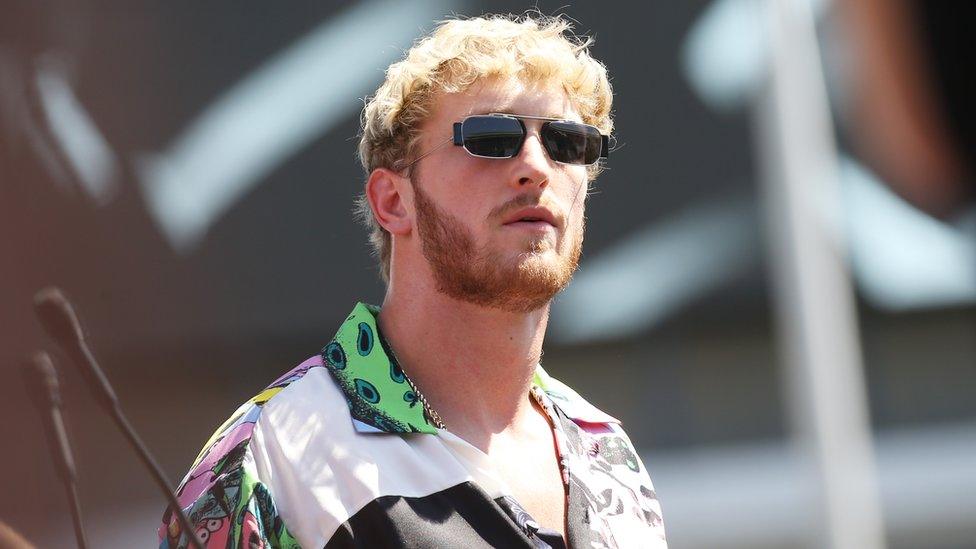Prime drink: How KSI and Logan Paul made it so popular
- Published
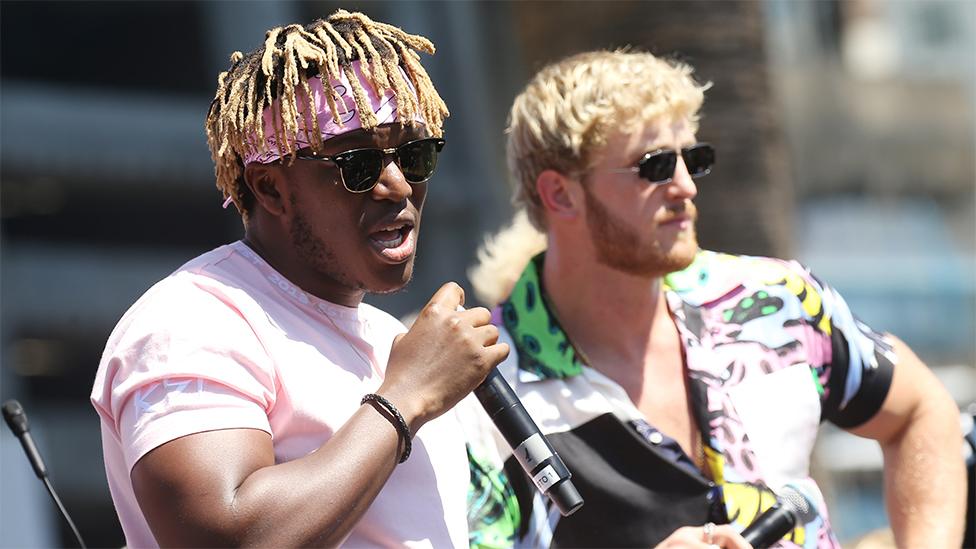
KSI and Logan Paul have gone from boxing foes to energy drink partners
Long queues, grappling shoppers and even headfirst dives into shelves.
That's what Prime Hydration - a drink promoted by YouTubers KSI and Logan Paul - has sparked in shops around the UK.
It's become an online sensation since being launched, with its limited UK availability causing a craze.
KSI denies that limiting the drink was a deliberate marketing ploy but the result of keeping it in short supply has been.... predictable.
Aldi first stocked Prime as a one-off special in December.
In videos showing chaotic scenes, customers were seen trying to get their hands on the drink as staff attempted to control crowds.
But it appears it wasn't a one-off because there were queues outside Aldi again on Tuesday as the supermarket brought in new supplies of Prime.
Shoppers can choose from six different flavours this time, with a bottle selling for £1.99.
With restocks selling out as fast as they arrive, it's also spawned a black market with people selling bottles for huge prices online.
But what is all the fuss about?
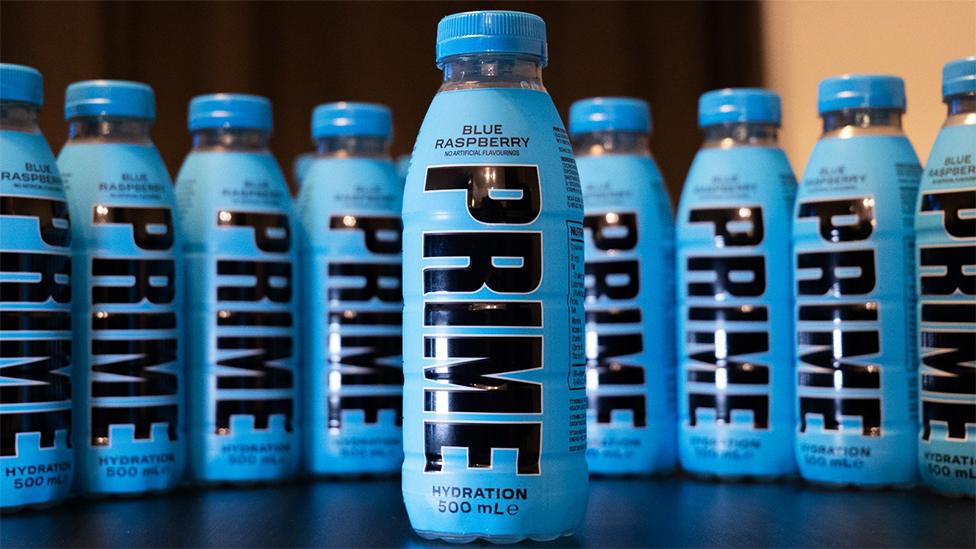
The hydration drink is available in multiple flavours with its website stating they are caffeine-free
Marketed as a sports drink, it's the result of a business venture between former boxing rivals Logan Paul and KSI - real name Olajide William Olatunji.
The pair - who have over 40 million YouTube followers between them - claim its different flavours aid hydration.
Speaking to BBC Newsbeat, KSI said the "crazy" response to Prime has been "unbelievable" and that he and Logan "honestly didn't expect it".
But marketing expert Eddie Hammerman says it's been a well-planned promotion, even if the level of success was a surprise.
"A buzz doesn't happen overnight, you don't create the demand overnight. It takes months, and it has taken them months to do this. And it's been really smart," he tells BBC Newsbeat.
KSI did admit that the two Prime founders are "very good at marketing" - and getting the word out hasn't been a problem thanks to their huge profiles.
Allow Instagram content?
This article contains content provided by Instagram. We ask for your permission before anything is loaded, as they may be using cookies and other technologies. You may want to read Meta’s Instagram cookie policy, external and privacy policy, external before accepting. To view this content choose ‘accept and continue’.
Where they have struggled is getting the drink to people who want to buy it.
Supply and demand is the key, says Eddie, who is managing director at The 10 Group - a marketing agency which works with the likes of Visa, Red Bull and Costa Coffee.
"Limit the supply, and then you create the demand," he explains.
"This is called scarcity marketing. It's a technique to encourage customers to make a purchase before the discount goes away or before there is a perceived limited supply."
For the customer, it comes down to FOMO - the fear of missing out.
"When something says there are 'only three of these [items] left', this taps into something called loss aversion… we don't want to miss out on a product we believe is in limited supply," Eddie says.
"And we've seen it during Black Friday where people have been [fighting] over TVs in supermarkets."
And when demand is high but supply is short, that's when scalpers can swoop in to make a profit.
When quizzed by Deborah Meaden from Dragon's Den on BBC's The One Show, KSI insisted limiting the supply had never been part of his marketing strategy.
"We have tried to increase the supply as much as possible and it's just not enough," he says, adding the drink was easier to source in the US than in the UK.
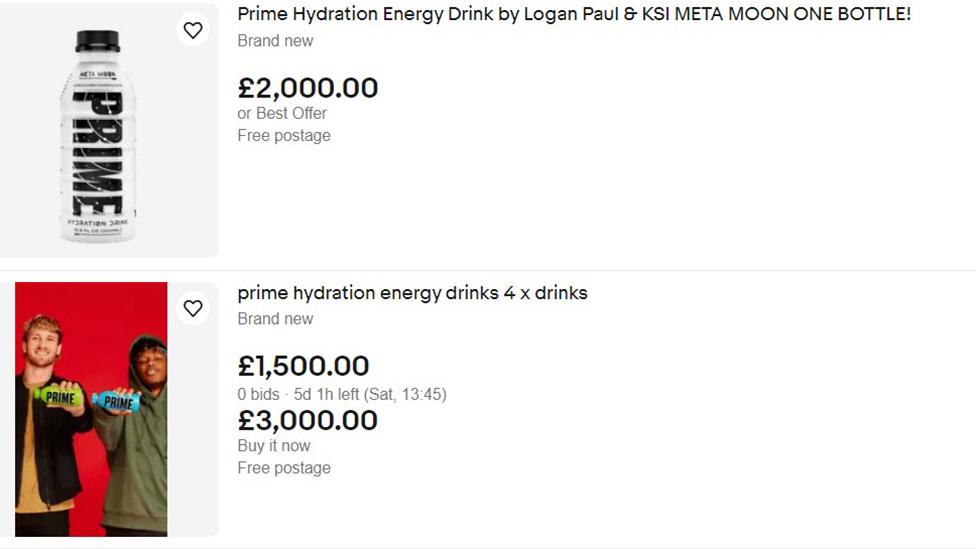
Bottles of the energy drink have been spotted for sale on eBay, with some sellers placing some pretty optimistic listings
KSI has been especially vocal about scalpers - and even called out popular TikToker Wakey Wines in a very angry video, external.
He's a Wakefield shop owner who regularly posts videos of customers who say they've paid him up to £100 for a single can of Prime.
KSI told Newsbeat he "genuinely hates" the resale market and thinks it's "taking advantage of people because of the hype".
"I hate it. I want everyone to have Prime at a reasonable price. And it's not fair. Obviously people are gonna say it's business, but I just think it's unfair."
Eddie says shortages in shops of products such as toilet roll and pasta during the first Covid lockdown is an example of how consumer behaviour can change when people think items will run out.
"Because it goes so quickly, and because people want it so much. All it takes is for the supermarket to say 'we're limiting the product'," Eddie says.
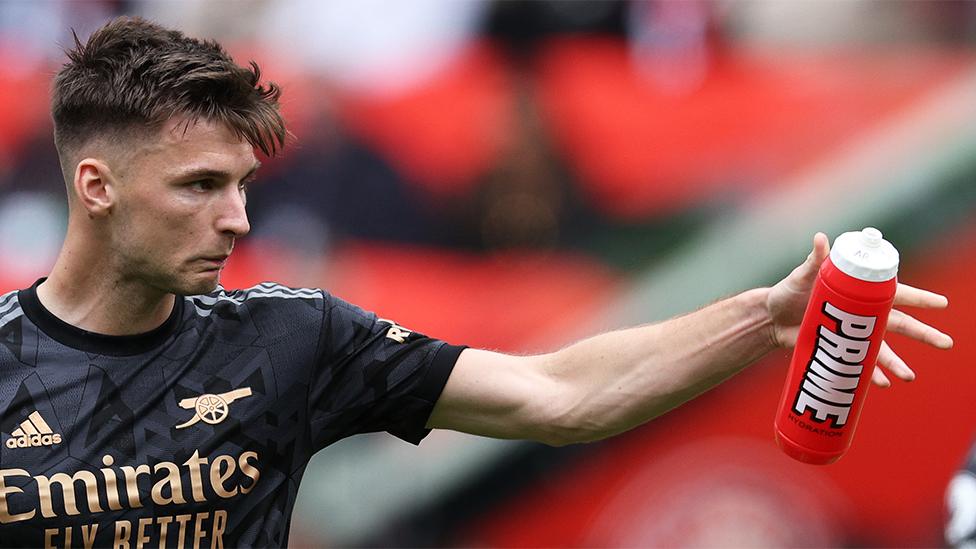
Arsenal players such as Kieran Tierney have been spotted drinking from Prime branded bottles
Eddie says there has been a combination of traditional and non-traditional marketing ploys powering Prime's popularity.
The drink is Arsenal Football Club's official hydration partner, external, meaning they have "access to talent and footballers which they do leverage in some of their marketing".
But, Eddie adds, KSI and Logan Paul are not wholly dependent on big brands to succeed thanks to their huge online presence.
"They're brilliant content creators so they understand what their [young] audience want and when they want it," he says.

Is Prime good for you?
For expert dietitian and sports nutritionist Dr Linia Patel, the drinks contain the ingredients you'd expect.
It's got coconut water, which provides sugar but not as much as "traditional sports drinks".
Prime also contains electrolytes - minerals that can be lost from the body through sweating.
"If you're exercising super hard, then absolutely [there's a place for it]. But I'd say for the majority of us, we don't need a special drink like this one," says Dr Patel.
The drink often promotes itself as being better than its competitors, but is there science behind the claim?
"I definitely don't think that this drink is better than others," Dr Patel says.
The latest Prime product is an energy drink containing caffeine - which the company says is not recommended for under-18s - and which Linia says should be avoided by younger people.
"The majority of us don't need a special drink to hydrate us, just get a good bottle of water," she adds.

People are still on the hunt for bottles - both online and in shops - and Twitter accounts advertising the latest sightings of restocks have appeared.
KSI's said work is being done to get more stock on the shelves.
Eddie feels consumer welfare also needs to be taken seriously, particularly with the scenes of aggression in shops.
"While it does seem quite amusing, fun and light-hearted, if the location can't cope with the number of people trying to buy the product, it can genuinely create health and safety issues."
"It's really funny, until it's not funny."


Follow Newsbeat on Twitter, external and YouTube, external.
Listen to Newsbeat live at 12:45 and 17:45 weekdays - or listen back here.
Related topics
- Published11 April 2023
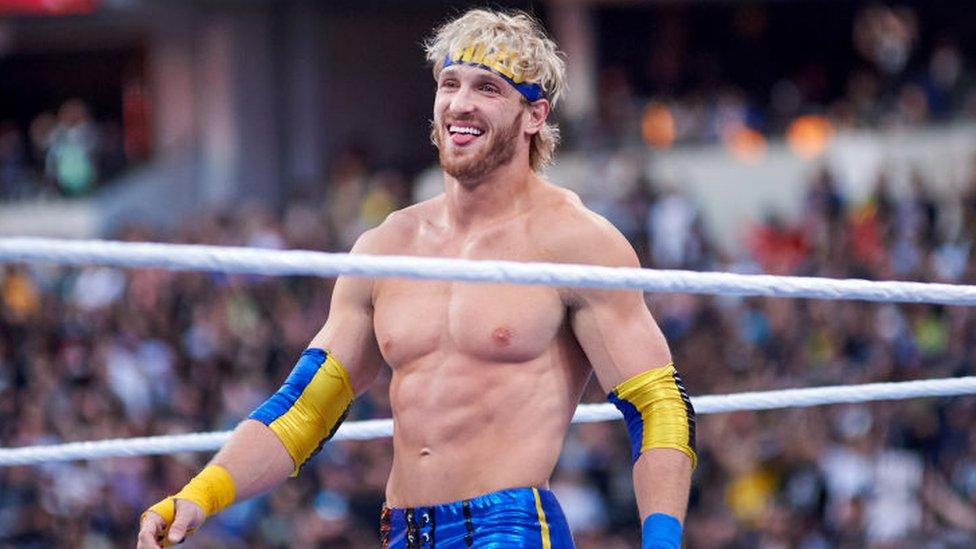
- Published5 April 2023
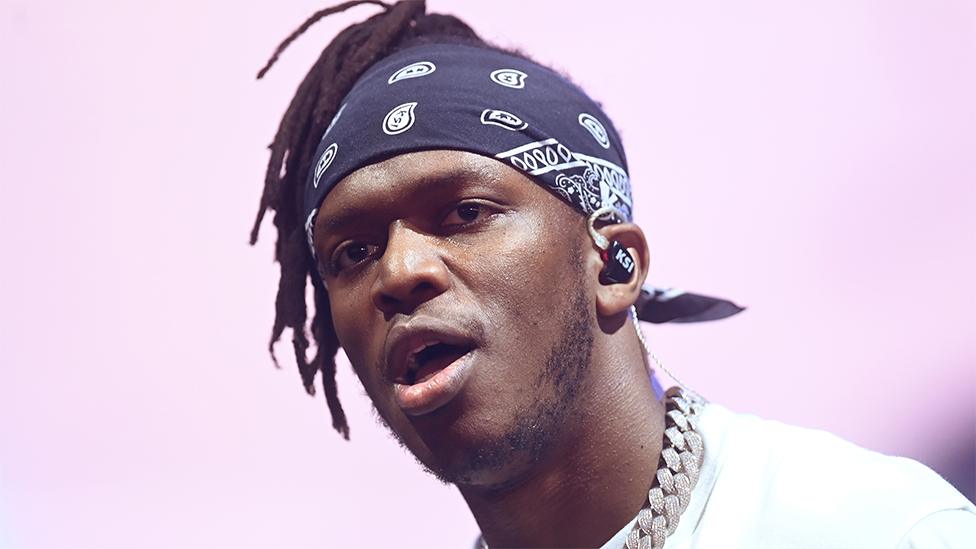
- Published3 April 2023
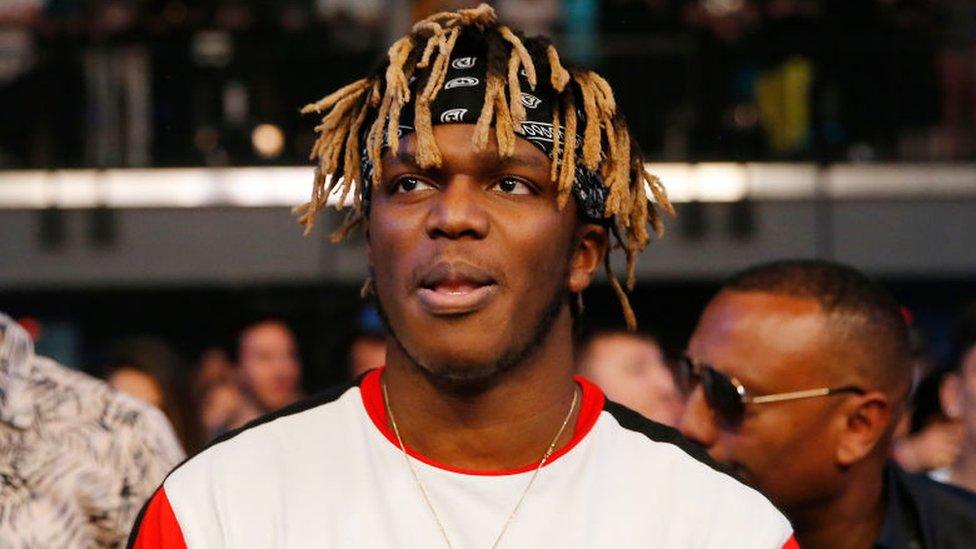
- Published23 July 2021
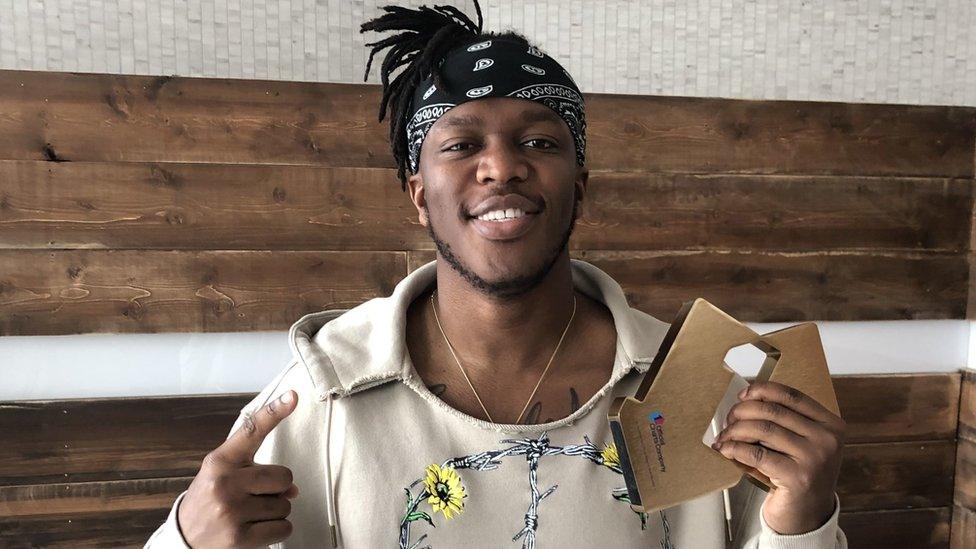
- Published25 March 2021
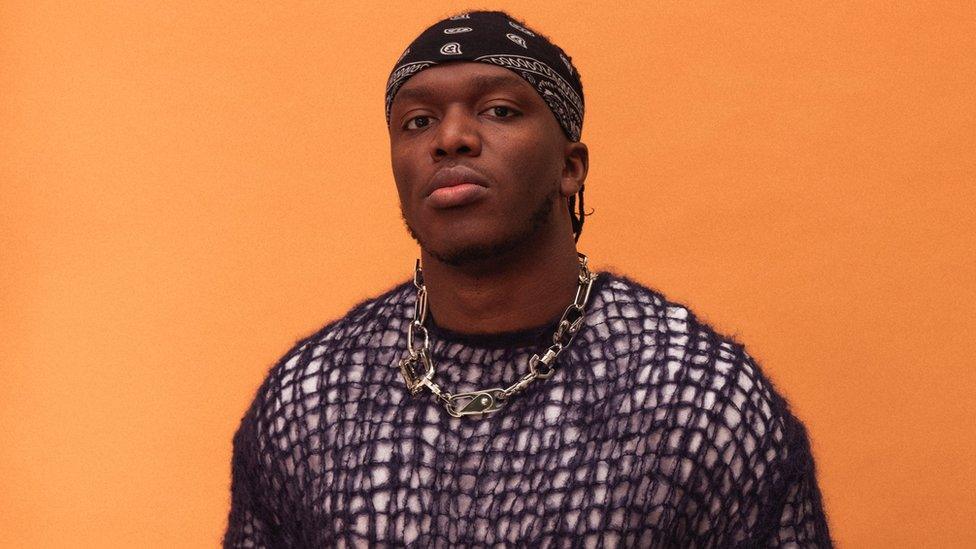
- Published8 October 2019
